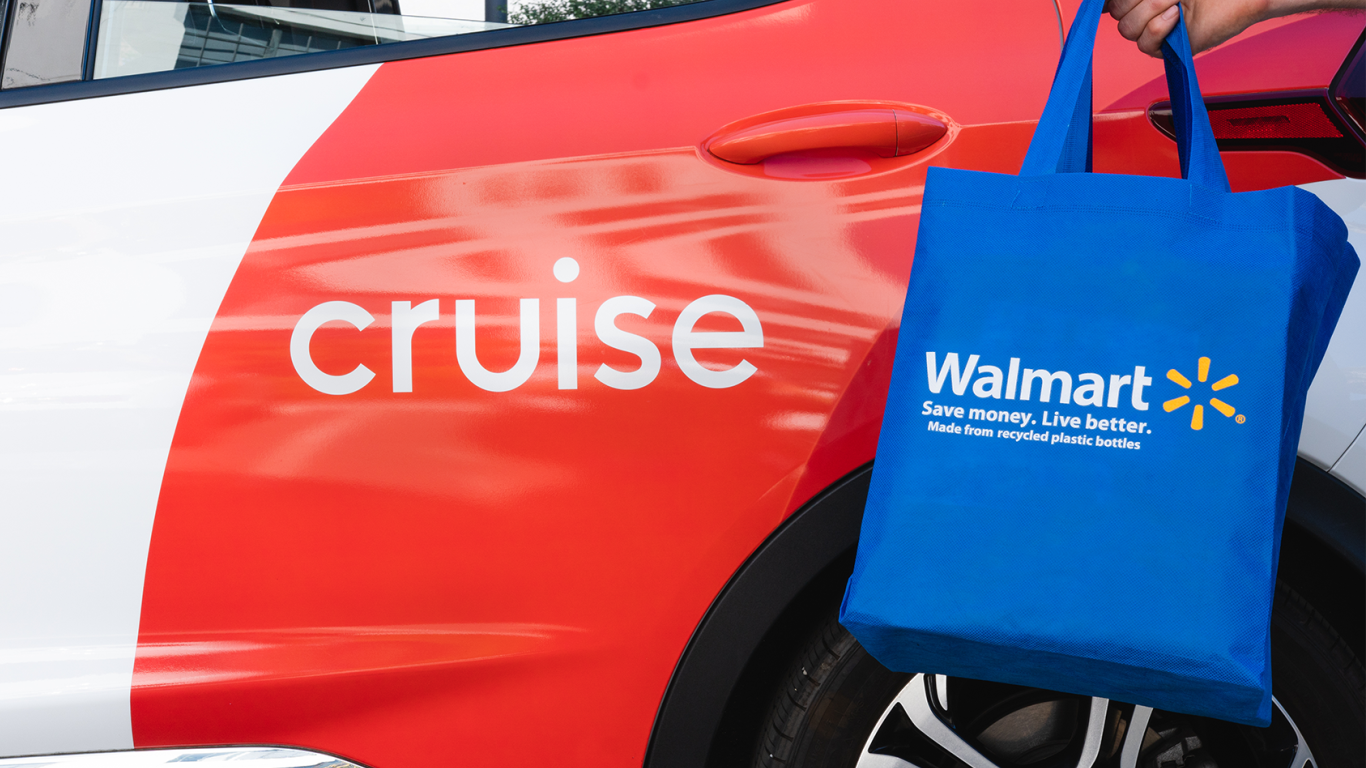Cars and Drivers
GM, Microsoft Sign Deal Valuing Automaker's Cruise Division at $30 Billion

Published:

In early 2016, General Motors Co. (NYSE: GM) paid $1 billion for a company called Cruise Automation, a San Francisco-based technology provider for self-driving cars. That investment now has a post-money valuation of $30 billion.
GM and Cruise on Tuesday announced a “long-term” strategic relationship with Microsoft Corp. (NASDAQ: MSFT) “to accelerate the commercialization of self-driving vehicles.” Microsoft, GM, Honda and other institutional investors also will invest more than $2 billion in Cruise, yielding the upwardly revised valuation on the GM division. GM’s total market cap before the announcement was around $72.5 billion.
According to the announcement, GM will use Microsoft’s Azure cloud and edge computing platform to “commercialize its unique autonomous vehicle solutions at scale.”
GM CEO Mary Barra said, “Microsoft is a great addition to the team as we drive toward a future world of zero crashes, zero emissions and zero congestion.” Microsoft CEO Satya Nadella added, “[W]e will apply the power of Azure to help them scale and make autonomous transportation mainstream.”
Taking self-driving vehicles mainstream means overcoming consumer reluctance to adopt autonomous vehicles. In its 2020 global survey of consumers’ attitudes toward advanced automotive technologies, consulting firm Deloitte found that consumers willing to pay more for a car with autonomous capabilities fell between 2017 and 2020. Just over a third of U.S. consumers were willing to more than $500 for self-driving technology.
Right now, the most popular self-driving technology, lidar, adds about $7,500 to the cost of a vehicle. That cost is forecast to drop to around $1,000 over the next few years. Maybe by that time consumers will be more willing to pay that much.
Still, the same Deloitte survey found that nearly half of Americans (48%) believe that self-driving cars will not be safe. That’s on par with Japan (47%), South Korea (46%) and Germany (45%). More than half of consumers in India (58%) think the vehicles will not be safe, while only about a third (35%) of Chinese drivers are afraid of self-driving vehicles.
Cruise CEO Dan Ammann acknowledges these concerns and believes Microsoft can help to quell them: “Our mission to bring safer, better and more affordable transportation to everyone isn’t just a tech race – it’s also a trust race. Microsoft, as the gold standard in the trustworthy democratization of technology, will be a force multiplier for us as we commercialize our fleet of self-driving, all-electric, shared vehicles.”
GM shares received a nice jolt in early trading Thursday, adding nearly 9% to post a new 52-week high of $54.42 before pulling back to a gain of around 6.6% to trade at $53.28. The 52-week low is $14.33, and the consensus price target on the stock is $52.44.
Since early 2019, the post-money valuation of Cruise has risen from $19 billion to $30 billion.
Retirement can be daunting, but it doesn’t need to be.
Imagine having an expert in your corner to help you with your financial goals. Someone to help you determine if you’re ahead, behind, or right on track. With SmartAsset, that’s not just a dream—it’s reality. This free tool connects you with pre-screened financial advisors who work in your best interests. It’s quick, it’s easy, so take the leap today and start planning smarter!
Don’t waste another minute; get started right here and help your retirement dreams become a retirement reality.
Thank you for reading! Have some feedback for us?
Contact the 24/7 Wall St. editorial team.